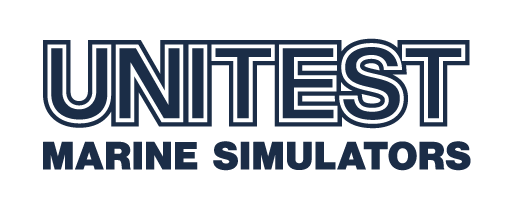This simulator is designated for training students of maritime academies as well as for different types of marine vocational training centers. The simulator has universal features and may be used both for training merchant and navy fleet crew.
The main purpose of the simulator is the practical preparation of the trainee for engine room operation, and more particularly:
- familiarization with the basic engine room installation (compressed air system, fresh and sea water cooling system,
- lubricating and fuel oil system, gear and CPP hydraulic system),
- acknowledgment with main engines and auxiliary equipment starting procedure,
- propulsion system maneuvering (main engines – reduction gear – CPP),
- power management system operation PMS.
PSV3D has been developed to comply with:
- STCW Code: Section A-1/12 and Section B-1/12,
- ISM Code: Section 6 and Section 8.
The PSV3D simulator is based on an engine room composed of four medium speed diesel ME two auxiliary diesel engine generators and two shaft generators.
The propulsion system includes four ME, driving through two reduction gears two controllable pitch propellers (CPP). Propeller’s revolutions and pitch are controlled simultaneously.
The simulator introduces 3D model of the Engine Room, based on the real equipment. In order to create the impression of working in the real environment, it provides 3D sound which can be listened on 2, 4 or more speakers.
Control room allows remote control of engine room equipment from computers.
Electric Power Plant is equipped with modern Power Management System which enables automatic control of generators according to actual power demand.
PSV3D simulator model includes following systems:
- Fuel System;
- Cooling System;
- Lubricating System;
- Compressed Air System;
- Power Plant;
- Emergency Generator;
- Sanitary Water System;
- Bilge & Fire System;
- Steering Gear;
- Sewage Treatment Plant;
- Water Mist System;
- Hot Water Boiler;
- Incinerator.
Here is a list of PSV3D main features:
- PSV3D is a highly realistic simulator for ship’s engine room training which can also be used as a low cost introductory simulator.
- The mathematical model simulates a typical ship’s engine room with four 4-stroke, medium speed engines, driving through reduction gears the controllable pitch propellers.
- All vital auxiliary systems have been implemented.
- The user interface includes virtual controls and alarms and creates very realistic environment. The 3D virtual reality with active valves, tank level indicators and selected digital gauges enable comfortable engine room operation and monitoring.
- Multichannel digitized sound provides a very realistic ships’ engine room feel. The sound effects include: engine sound correlated with engine speed, the sound of a diesel generator starting and running, open indicator valve sound, alarm and machine telegraph buzzers.
- Emergency procedure training including fire simulations.
The main educational tasks which can be accomplished using PSV3D have been listed below:
- Learning ship’s engine room typical operating routines.
- Ship’s engine room operation training. The user will have the possibility to accomplish any operational task starting from different setups, both pre-prepared and saved by a user.
- Corrective action learning when faults occur. Different faults can be simulated and mixed in the run-time or loaded from disk.
To meet the requirements:
Engine Room Simulator has been developed to comply with STCW Code:
- Section A-1/12 and Section B-1/12
- ISM Code: Section 6 and Section 8













